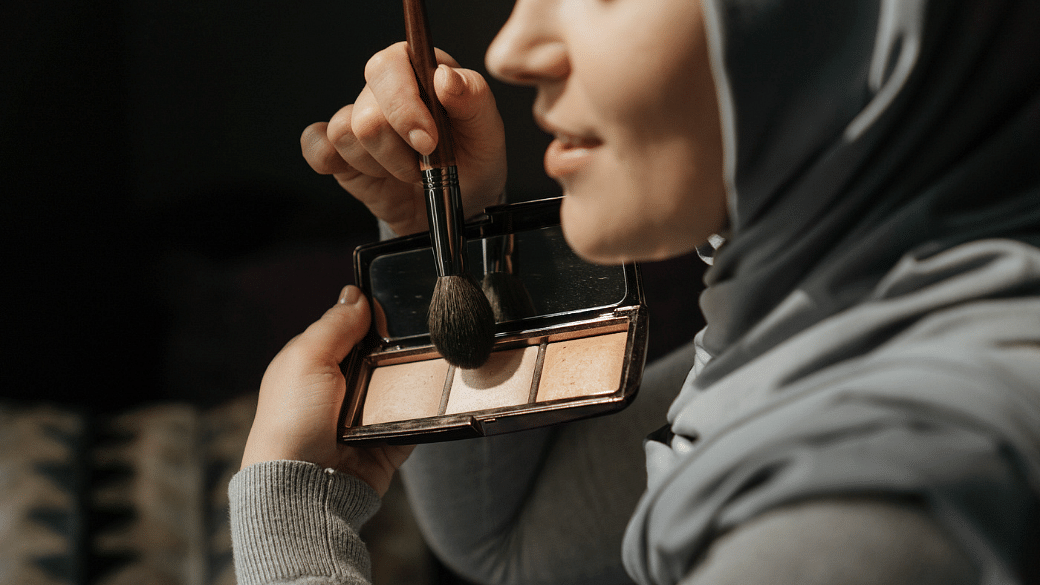Being halal doesn’t mean you must compromise on pigment, quality, or shade selection because halal beauty products are damn good. Muslim women (and men) have been ingredient-conscious for years to ensure the makeup products they’re wearing are permissible under Islamic law and can be worn for wuḍū – and brands are starting to match consumer demand with high-quality, halal beauty products. Muslim women founded some of the industry’s top beauty brands — case and point: Huda Beauty.

Below, you’ll find everything you’ve ever wanted to know about halal makeup and beauty products; plus, we asked Muslim women about the brands you need to know (if you haven’t discovered them already). Do halal beauty products have certification? Not all halal beauty products have a certificate or a symbol on the packaging, especially if they’ve chosen to be labeled ‘organic’ or ‘natural’ instead. Although not the same as halal, they usually avoid similar ingredients.
If they have a symbol, it’s often in a circle or the shape of a rubble Hizb, with the word ‘halal’ clearly labeled. Most countries have halal certification, so they may appear slightly different depending on where the product is made. What ingredients should be avoided if a product isn’t labeled ‘halal’? If you’re unsure if a beauty product is halal, these are the ‘red flag’ ingredients to look out for. Keratin: Mostly found in hair care products, keratin is a natural protein often derived from animals.
Carmine: You may have heard of crushed beetles being used in lipsticks before, and well, the rumors are true. It’s called ‘carmine.’ Oleic acid: Found in various cosmetic creams, soaps, and pastes, oleic acid is a cleansing agent and texture enhancer. It’s made from fatty acids often derived from animals. Lanolin alcohol: A non-drying compound that helps protect the skin from moisture loss. It’s ousuallyproduced from the fat of wool shearings. Gelatin: Gelatin is made by boiling the skin, cartilage, and bones of animals, including pork skin, horns, and cattle bones.
Is breathable nail polish acceptable for wuḍū?
The idea behind ‘breathable’ nail polish is that it’s ‘water-permeable,’ meaning that the cleansing ritual before wuḍū can be completed without having to remove your nail polish. Most Muslim women believe that breathable nail polishes aren’t haram and wear them to prayer without worry.